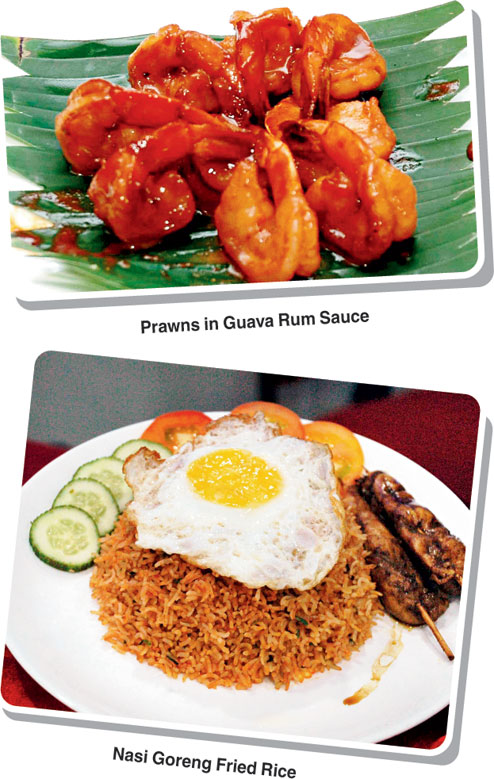 |
| The Fighting Cocks at Horncastle. Picture by Nondon Bagchi |
Saturday, October 7, 2006, about 11 am. We are driving through some very picturesque English countryside in Lincolnshire — “The bread basket of England”. It’s almost entirely agricultural country, dotted with small, neat, quaint little villages set in the midst of mile upon mile of land under the plough and home to well-fed, contented-looking livestock — horses, cows, sheep and pigs, who look at you with mild alarm and curiosity or remain statuesque in their indifference as you pass by. Scenes that have remained frozen in time for centuries.
We pass a small farmer’s cottage that has a sign saying “free range bantam eggs sold here”. I am told that bantams are chickens whose eggs are exceptionally tasty — somewhat like our desi eggs back home. I am also told that these eggs are placed on a table outside the farmer’s house with an “honesty box” kept at the side. As you pass by, you can pick up as many eggs as you need, put your money in the box and continue on your way down the winding village lane. I try to digest this through a sense of disbelief, but apparently such things still happen in this neck of the woods.
Our destination is a small market town called Horncastle, steeped in history, named Banovallum during Roman occupation, and particularly attractive for having a large number of public houses or pubs; at one time there were as many as a record 53 — one for each week of the year and an extra one for luck. This had partly to do with the town once being an international destination as Europe’s biggest horse fair was held here each year. Apart from wines, ales and spirits, excellent traditional, hearty and substantial meals were, and still are, to be had at these.
A few years ago I had one such meal at a pub called the Admiral Rodney. Roast pork, apple sauce, mashed potatoes, mushy peas and boiled vegetables tossed in butter for the main course, washed down of course with the finest brown ale. And for dessert, apple pie with vanilla ice-cream.
Any sojourn in Horncastle must be marked by such repast although the winds of change have swept by even here and they have their pizzerias, kebab shops, fast food outlets, an Indian and a Chinese restaurant as well. But this is the home of prime Lincolnshire red beef, of squeaky fresh cod and haddock from Grimsby on the east coast, of prize pork, succulent lamb and, arguably, the finest English potatoes. It would be a shame to look for chicken tikka here, though, ironically, it is running for a place as Britain’s number one favourite dish. Speaking for myself, an authentic meal it had to be.
This time around, the grapevine told me that The Fighting Cocks was the place to visit. This property is about 250 years old; the façade and space just inside the entrance is virtually unchanged, though the rest of the area has seen many alterations.
At present it is a pub where lunches and dinners are served but it has seen other avatars, such as an inn for travellers with old-fashioned rooms upstairs, each with its own wash-up basin and such like accessories.
The landlord is Ray O’ Hagen who came to England from Ireland in 1970 and he and his wife Elaine have been running The Fighting Cocks for seven years.
Over a glass of lager one afternoon he told me that there actually was a cock pit on the premises where cock fights were held, until 1849 when it was banned for being a bloodsport. The walls are still adorned with pictures of these fierce prize-birds, complete with sharpened spurs and beaks.
“People come from miles around for our genuine home-made ham, home-made pies and fish and chips. Our portions are substantial and it’s good value for money.”
Each day’s supply of their steak and Kidney Pie is made by simmering 10 pounds (five kg) of braising steak in three pints of milk, tomato sauce and avi pouvre brown-pepper sauce for five hours, till the meat is tender. Individual portions are covered with puff pastry and the pies are ready to be served. Other pies they make are Steak and Ale and Lamb Hot Pot.
Seafood items include their famous cod or haddock fillets (chunks or slabs, really) in a light, crisp batter (house secret), served with mushy or garden peas, salad garnish and a choice of chips, new potatoes, jacket potatoes or potato croquets.
They also do an eight-ounce (about 250 g) salmon fillet in a white wine sauce with vegetables and the same accompaniments, and Breaded Whitby Scampi.
The cod and haddock were described by one of the best cooks I know as “something to die for”, but hailing as I do from the land of Calcutta bekti, and from a city with a good reputation for fish and chips (though in smaller portions), I chose to pass on this and for dinner on the same day I asked for the 12 ounce (375 g) Gammon (ham) Steak, served with a fried egg, batter-fried onion rings, mushrooms, peas, pineapple, salad garnish and croquet potatoes.
A huge meal, to be had slowly and steadily, savouring as you go. It is a different, no-holds-barred approach to eating. Consider their Mixed Grill, described even by themselves as “large”. It has rump steaks, gammon, pork steak, lamb chop, sausage, liver and kidney, plus all the trimmings that go with the gammon steak.
Their Beef Steaks go up to 24 ounce portions (1.5 kg!) and if you order their Pork Steaks, you will get two, not one. And there is a section of their menu which says, “Extra Portions at £1.20”.
It is wonderful that in those establishments the tradition of the old inns, alehouses and taverns has been kept, when travellers or farmers arrive weary and hungry. More importantly, the quality here is great — inviting presentation and robust taste. I have not seen chips like they serve here in a long while.
But to eat here regularly, you would have to be a sumo wrestler, not a fighting cock.









